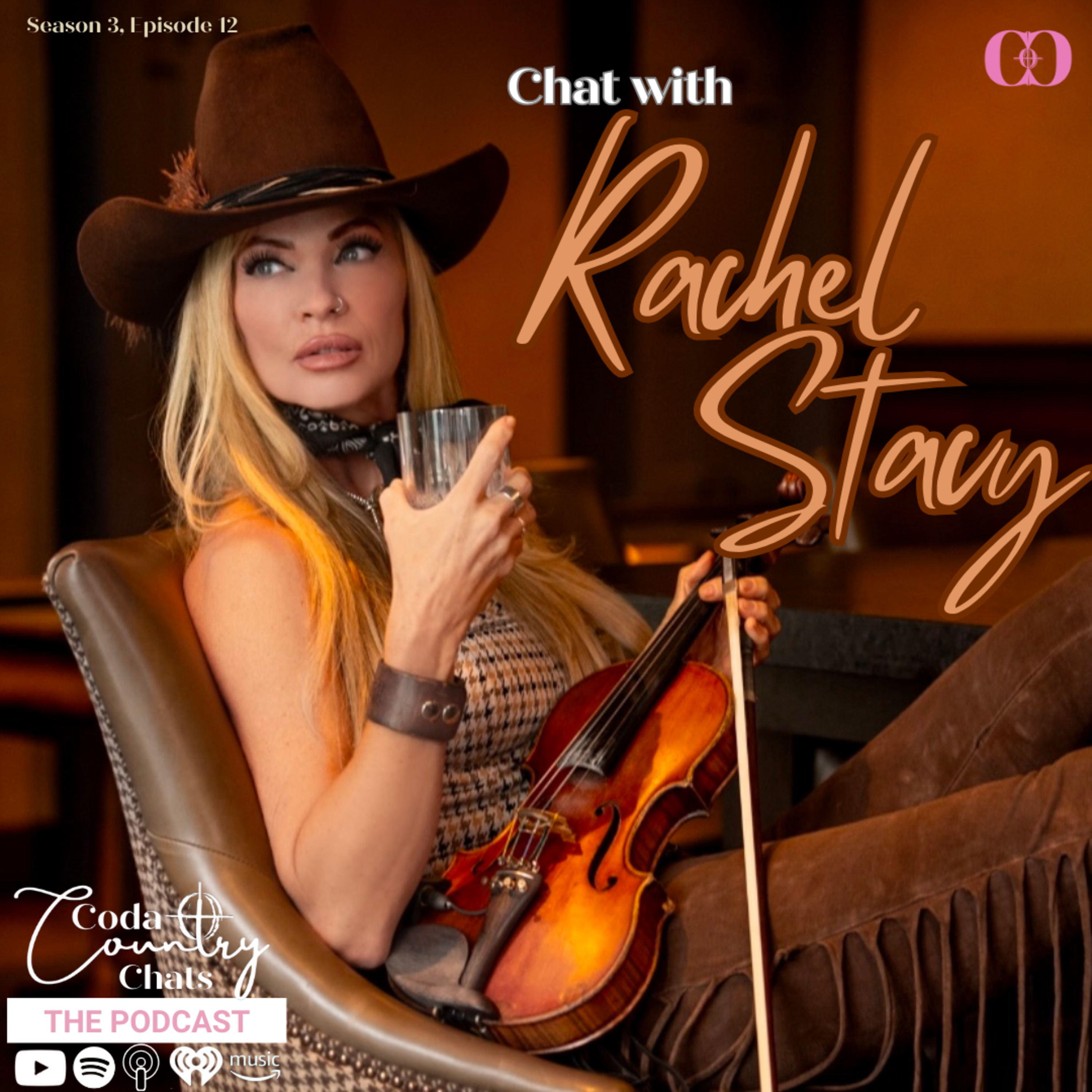Chat with Rachel Stacy
- Author
- Coda Country
- Published
- Tue 27 Feb 2024
- Episode Link
- https://podcasters.spotify.com/pod/show/codacountry/episodes/Chat-with-Rachel-Stacy-e2gc4i8
Leigh chats with Rachel Stacy on this episode of the "Coda Country Chats" podcast!
About Rachel Stacy:
Rachel Stacy can share stories about the road she’s travelled to get where she is today that would scare an outlaw straight or the stars right out of the eyes of the most optimistic young dreamer even contemplating a life in music. But believe her when she says that’s not her M-O.
“My platform is not sobriety,” insists the hard-touring, Texas-based singer, songwriter, and multi-instrumentalist, who — just for the record — is in fact 11 years proudly sober. But at this exciting point in her life and career, she’s far more interested in looking to the future — and using her music and voice as a beacon of hope rather than dwelling on the past.
Stacy herself is living proof of this, but her own go-to example is none other than the living legend with whom she had the good fortune of working with during the writing and recording of her newest batch of songs: Texas/Americana icon Ray Wylie Hubbard. The wizened and widely revered “Wylie Lama,” who didn’t even begin to embark on the most rewarding phase of his career until finding sobriety at age 40 — 20 years after writing the immortal outlaw country anthem “Up Against the Wall, Redneck Mother” — met Stacy early on in her own recovery and encouraged her to stay the course and to keep faith in her artistic purpose. That path eventually led to their rendezvous a decade later at the Zone Recording Studio, just outside of Dripping Springs, Texas, in the late summer of 2021 to track the best songs of Stacy’s career to date: “The Ghost of Lishe Jackson,” “Take a Little Time,” “Trouble,” and “The Night.”
“Ray kind of mentored me early on when I got sober, but we didn’t really reconnect until last year,” she says. “In that time in between I was doing a lot of touring, and I had some other songs on the radio, including one called ‘Boomerang’ in ’17 that did really well. But then we crossed paths again and Ray said, ‘Let’s get in the studio and do that project we talked about doing together some day — I think it’s time people learned the songwriter you really are.’
“That was pretty cool just to hear from someone that I’ve looked up to and admired for so long,” Stacy enthuses. “It makes me feel like I’ve definitely matured and grown up a lot as artist, to get to this point where I now get to work with Ray. He inspires me to be a better musician and writer.”
Based on the evidence of the “The Ghost of Lishe Jackson,” though, Stacy was already well on her way to that next-level long before going into the studio with Hubbard. She recalls beginning to write the haunting tale of forbidden love and racial injustice nearly a decade ago, within a year of first getting sober. “That’s when I started to focus more on storytelling and symbolism in my writing,” she says. “That song is about a black guitar player who falls in love with a white mayor’s daughter in Jackson, Mississippi, and the townspeople end up lynching him and killing her, but their love lives on even after they’re gone. The characters are fictional but I did a bunch of research unfortunately a lot of that stuff could have happened over and over back then. But there’s a lot of symbolism in that song, because for me it’s also about being a female in the record industry. The music business can be a kind of forbidden fruit, too, and when you chase after it you can end up sacrificing a lot of things in your life. But that pursuit that can almost destroy you can also save you, and in the end, that love of music can live forever.”
Follow Rachel Stacy:
https://www.rachelstacy.com/
Instagram: https://instagram.com/rachelstacymusic
Facebook: https://facebook.com/rachelstacymusic
YouTube: @RachelStacyMusic
